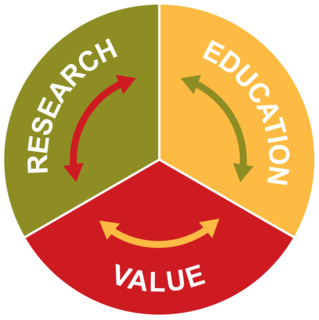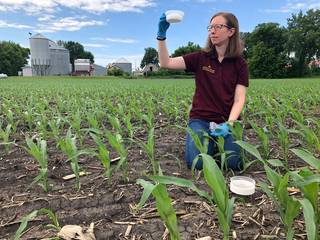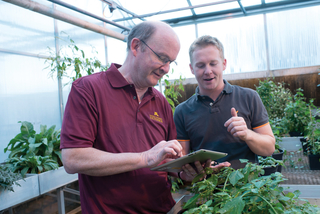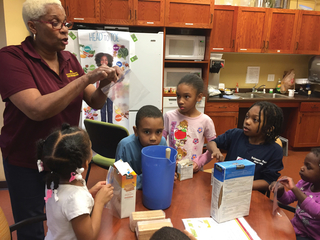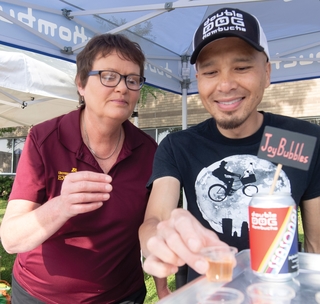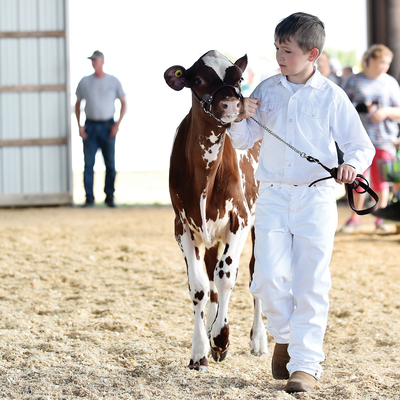Extension's 2020 strategic plan
Building on a solid foundation
For more than a century, University of Minnesota Extension has been dedicated to the University of Minnesota’s land-grant mission. Like the University, Extension is dedicated to the advancement of learning; to sharing knowledge through education for a diverse community; and to the application of knowledge to benefit the people of the state, the nation and the world.
Extension thrives because it is rooted in communities. Extension succeeds because of its dedicated and passionate faculty and staff, who are inspired by and empowered to ensure that Extension makes a difference.
Nearly a decade ago, Extension developed a strategic plan that articulated the organization’s mission and vision, as well as strategies to fulfill those imperatives. This updated version of that plan is based on the idea that while the foundational priorities and strengths of Extension have not changed, the world around us has.
A vision for the future
The goals and strategies for 2020 described in this plan reflect that emerging challenges and opportunities require new approaches to fulfilling the land-grant mission. These trends include globalization and a competitive marketplace of ideas; an increasingly diverse society; game-changing technological advances; broad and variable funding streams; and eroding public trust of hierarchical, traditional systems.
The 2020 Extension Strategic Plan: A Pathway Forward is built around the three essential components – scholarship, engagement and systems – that have guided Extension through more than a century of creating public value for Minnesota and beyond.
This framework is intended to focus and guide planning and decision-making across Extension. Working within this vision, Extension centers and programs will adapt their goals and strategies to meet stakeholder needs while remaining consistent with the larger organization’s priorities and plans.
The University of Minnesota Extension Mission
University of Minnesota Extension was established in 1909 and helps the University fulfill its land-grant mission of addressing critical public issues through teaching, research and outreach. Through its federal, state and county authorization and funding, Extension helps the University extend scientific knowledge and expertise to the public in key areas including food and agriculture, communities, environment, youth and families.
Goal: Engagement
Extension engages in meaningful ways with individuals, families, communities and stakeholders to lead and advocate for positive change across Minnesota, the nation and the world. Relationships grounded in mutual trust and understanding allow Extension to respond nimbly and effectively when its expertise is needed.
Strategies for engagement:
- Establish and maintain mutually beneficial relationships in the diverse communities where Extension people live and work.
- Co-create approaches and solutions that empower individuals and communities to thrive and evolve in all stages of life and circumstance.
- Innovate and bring forward new ideas by supporting opportunities for partnerships and collaboration.
Goal: Scholarship
Extension excels as the trusted, go-to source for information advancing research, education and solutions that reflect Minnesota communities and their social, economic and environmental needs. Research-based scholarship and academic excellence are the foundation for Extension’s public value.
Strategies for scholarship:
- Expect rigorous scholarship, programs, tools and methods to meet the challenges of a changing world.
- Collaborate across disciplines and geography to anticipate, identify, address and innovatively respond to key needs.
- Adapt and embrace technology as a tool for addressing grand challenges and critical societal issues.
Goal: Systems and people
Extension consistently promotes efficient, effective and integrated structures and practices that reduce administrative barriers to innovation and collaboration. Extension stakeholders understand that the organization’s public value is rooted in a culture of belonging and inclusiveness.
Strategies for systems and people:
- Attract and retain high-quality, passionate employees through consistent and effective on-boarding, professional development, mentorship, promotion and retention.
- Weave diversity, equity and inclusion into all aspects of Extension’s programming and employee engagement.
- Find new and innovative ways to tell the Extension story and to share the value that Extension brings to its stakeholders and the public.
Background and process
In 2019, Dean Beverly Durgan convened a committee of professionals representing all parts of Extension to refresh the organization’s strategic plan and to set a course for the next decade. Over the course of several months, the committee examined trends in education, technology and engagement as well as models from Extension’s peer organizations in other states.
The committee concluded that a strategic plan’s effectiveness is dependent on clarity and conciseness as well as a sense that it is a decision-making guide rather than a prescriptive list of to-do items. University of Minnesota Extension 2020 Strategic Plan: A Pathway Forward is intended as a broad framework that can be adapted for Extension centers, programs and individuals’ specific plans and goals. It establishes a baseline of expectations and assumptions at the organization-wide level.
Strategic Planning Committee
- Ryan Allen – Associate Extension Professor, Humphrey School
- Silvia Alvarez de Davila – Extension Educator, Family Resiliency
- MaryAnn Anderson – Extension Educator, 4-H Youth Development
- Becky Beyers – Director of Communications and Public Relations
- Michael Compton – former Extension Educator, Director, 4-H STEM
- Fabian Fernandez – Associate Extension Professor, CFANS
- Jared Goplen – former Extension Educator, Crop Production
- Brent Hales – former Senior Associate Dean
- Mary Jo Katras – Program Leader, Family Resiliency
- Dan Larkin – Assistant Extension Professor, CFANS
- Neil Linscheid – Extension Educator, Community Economics
- Tammy McCulloch – Regional Director, East Central Region
- Jenifer McGuire – Associate Extension Professor, CEHD
- Janae Olinger – former Project Specialist
- Lissa Pawlisch – former Program Leader, Regional Sustainable Development Partnerships
- Lauren Sorgaard – former Executive Administrative Specialist
- Brigid Tuck – Senior Economic Analyst, Community Economics
- Julie Weisenhorn – Extension Educator, Horticulture
- Emily Krekelberg – Extension Educator, Livestock


